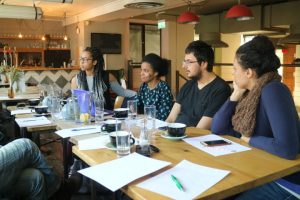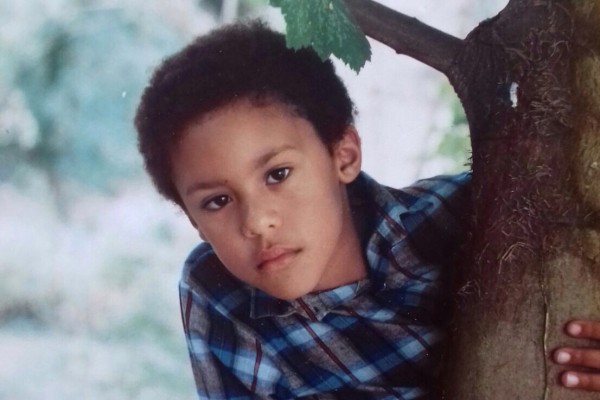Black and Belgian: Navigating Multiracial Identities in Ghent, Belguim
Afropean: Adventures in Afro Europe
2014-10-01
Walter Thompson-Hernandez
Introduction
What does it mean to be Black and multiracial in Belgium? How does sub-Saharan African culture and experiences impact the lives of multiracial people or Afropeans in Belgium? How influential is the U.S. Black experience in the formation of an Afropean identity rooted in Belgian and African cultures? These were some of the questions that I pondered, seven weeks ago, at the outset of this project – eight weeks later, I am still grappling with them. This past summer, I arrived in Ghent, Belgium – a city with a population of 100,000 people, located forty-five miles northwest of Brussels – with hopes of understanding and delving into the multiracial experience of five people with parents from a sub-Saharan African country and the Flanders region in Belgium. Through interviews, observational data, photography, and other methods, I compiled valuable information regarding their stories.
Motives
I was drawn to Belgium for various reasons. As the son of an African American father and a first generation immigrant mother from Mexico, I have always been intrigued by the ways in which immigrant-origin populations impact the racial and social fabric of receiving sites. In attempting to construct my own multiethnic and multilingual identity, I have navigated, and often struggled, to understand my role in my family and community, and the subsequent reactions of my relatives – on both sides of the border, on both sides of my family tree. In Belgium, I found similar experiences with people who had at least one parent from an African country. The feelings of marginalization that I came across were all too familiar: ‘People didn’t know how to treat me’ and ‘I felt like I didn’t belong in either Belgium or Africa’ were some of the feelings that were expressed. Often, as I learned, my respondent’s relatives were faced with the challenges of conceptualizing both an African heritage and a Belgian identity. For many of these relatives, as I was told, the idea of a Belgian identity was already complicated by the French-Dutch language divide manifested in the Wallonia and Flanders regions in Belgium. ‘Identity in Belgium is already complicated,’ one person told me. ‘Are we French speaking or are we Dutch speaking? You add race and national origin to that and it really makes things interesting.’ As opposed to many societies around the world, many regions in Belgium, exercise – amidst contentious debate – a French and Dutch multilingual reality that, often, exacerbates identity formation for people of multiracial backgrounds, so that not only does an Afropean, in the spirit of W.E.B. Dubois, have to navigate a “double consciousness” of being European and African, but also split identities pertaining to language.
Secondly, in the age of European “Super Diversity” – a term coined by social scientists to describe the high rates of immigrant inflows to European nations – I was curious about the ways in which second generation children (the children of first-generation immigrants) were constructing their identities in the context of shifting racial and demographic landscapes. In the United States, interracial mixing is, often, romanticized and harmonized in the framework of multicultural ideas dating back to the 1970s. While once seen as a social and racial aberration, evidenced by anti-miscegenation laws and eugenics, multiracial children and families today have in many regions in the U.S. become a normative aspect of society. In Belgium, however, I learned of tacit and explicit “rules and regulations” for interracial mixing…
Read the entire article here.



